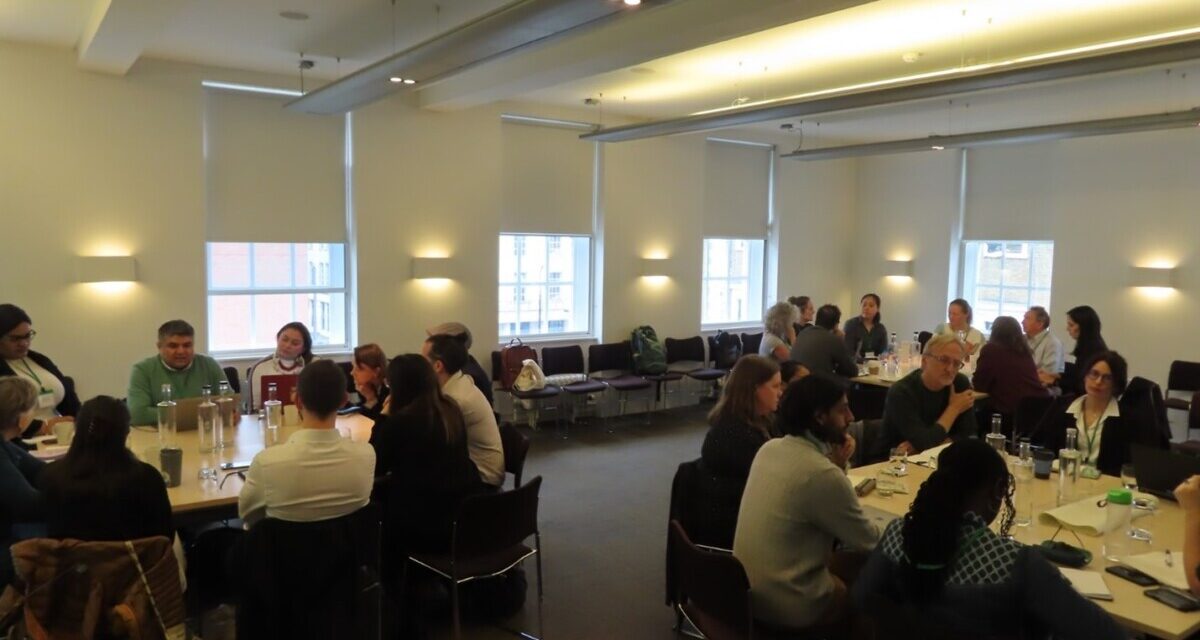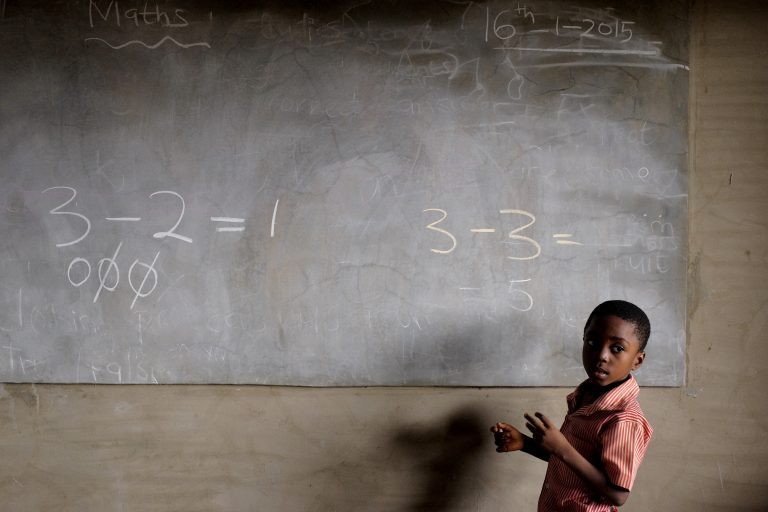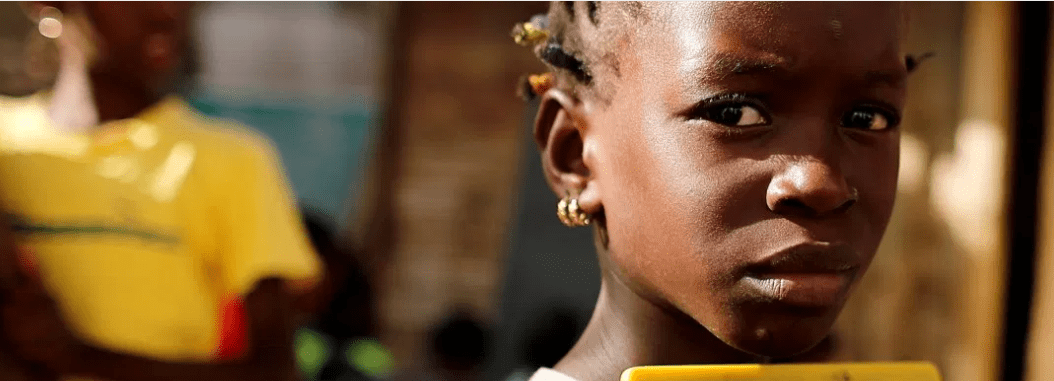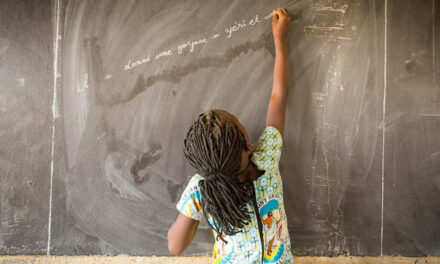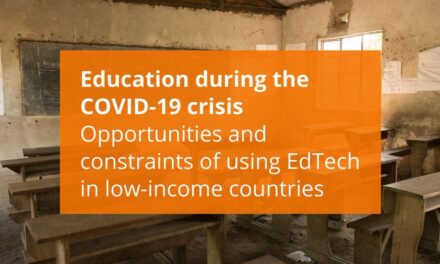This blog was written by Mir Abdullah Miri, University of Bath; Amy Lightfoot, British Council; Ann Veitch, British Council; and Lizzi Milligan, University of Bath.
In March 2024, UKFIET, in collaboration with the British Council, convened an important event in London to highlight the critical yet often overlooked role of language in education. The initiative aimed to enhance understanding and foster collective commitment among UKFIET member organisations and wider stakeholders, to address language’s fundamental role in learning. Acknowledging that children cannot effectively learn in an unfamiliar language, the event sought to challenge and change current practices.
We, the authors, served as facilitators for four distinct groups, each including academics, practitioners, and advocates. These groups were focused on specific themes: (1) assessment and evaluation, (2) the socio-emotional aspects of learning and teaching, (3) education in crisis contexts, and (4) foundational learning and transitions between educational stages. The objectives we hoped to achieve through the event and our continued shared action and commitment are:
- Raising awareness of the centrality of language in education and recognising the fact that children cannot learn in a language they don’t understand
- Considering language issues at all stages of an education initiative’s design, implementation, and evaluation
- Developing more appropriate language in education policies that take into account existing resources and capabilities within the education system.
Event format and its impact
To foster productive discussions, we provided participants with a series of questions under three primary discussion categories: why is this topic important, what are the challenges and opportunities, and how can we collectively address them?
We chose this format to ensure maximum participation and sharing of knowledge and experiences. Moving away from a focus on plenary sessions delivered by single experts, we felt that quickly splitting into four groups to look at four key focus areas would be much more valuable. This format also allowed people to interact and make connections across organisations, and to discuss potential follow-up actions that they could do together.
The format was designed to be non-hierarchical and with focused and extended time on discussions to build rapport and identify shared interests/pathways forward. We chose not to have a keynote but instead to start with some insights from policymakers and practitioners from the Global South. This was because while our format worked well for knowledge sharing, we were acutely aware that this was sharing among a narrow group of ‘experts’ and missed the expertise and experience of many who did not have the privilege to be in the room.
The format was generally effective, as it engaged participants before, during, and after the event. Using Padlet for pre-event tasks helped familiarise participants with each other and set the stage for active engagement. This interaction continued throughout the event, with each group diving deep into their respective areas, discussing challenges and opportunities, and formulating collective actions. The enthusiasm and collaboration, while strong during the event, saw varying levels of continuation on the Padlet platform.
The event’s flat structure facilitated open communication and was generally well received, according to participants’ feedback. We are continuing the momentum with a range of follow-up activities, with each of the four groups sharing specific action points they developed at the session’s conclusion. The discussions were not restricted in terms of the number or types of collective recommendations, which led to a variety of suggestions for short-term, long-term, and ongoing initiatives. Also, the time and space to talk went well overall, as did having a moderator with the flexibility to proceed around some pre-agreed outcomes. This helped the conversations to flow without feeling like we needed to get to the next point on the agenda too quickly.
Future directions and actions
This event marked a starting point, bringing to light the elephant in the room—the critical role of language in education. Our discussions underscored the importance of sustained dialogue among various stakeholders about integrating language considerations throughout all stages of educational planning and implementation. More than just a one-time gathering, this initiative has set the stage for ongoing advocacy and policy influence by generating collective actions that recognise the critical role of language in education.
Looking forward, we understand the need to ensure that voices from regions most impacted by education systems, especially those in low and middle-income countries, are not only heard but actively shape the dialogue. We tried to address this to a small extent by starting the event with a video of a collage of clips from different stakeholders from South Asia and sub-Saharan Africa – two regions where language of education issues are particularly pertinent. However, the limitation of hosting these primarily in-person events in London could risk continuing language hierarchies. In response, there are also some follow-up events being planned in Nepal in September 2024 and in South Africa or Kenya in 2025 to further explore these issues with policymakers and practitioners. Also, we aim to make future discussions more inclusive and accessible by offering multilingual options, thus broadening our perspective beyond a predominantly UK-centric or English-dominant focus. Over the next couple of months, we will be sharing further insights from the event with a focus on the four areas of discussion.
—————-
Blog series
This is the first in a blog series focused on exploring issues of language in education. The series follows a workshop organised by UKFIET and the British Council in March 2024 and aims to highlight challenges and opportunities relating to the four main themes discussed.
Others in the series include:
Why is language critical in education during crises?
Arguing for a language-focused approach to support socio-emotional learning and wellbeing
The impact of the language of instruction on foundational literacy and transitions
Addressing the neglected area of language(s) in assessment and evaluation

